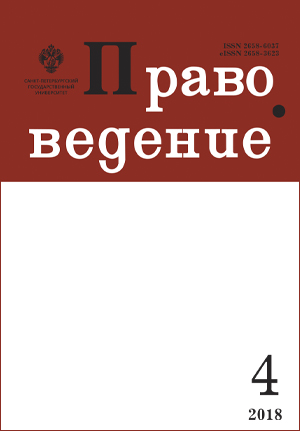Инвестиционные технологии исламских банков и перспективы становления беспроцентного банковского сектора в России
DOI:
https://doi.org/10.21638/spbu25.2018.407Аннотация
Мировой экономический кризис 2008–2009 гг. стимулировал переосмысление основ привычной финансовой модели и поиск возможностей ее нравственной перезагрузки. В связи с этим инвестиционные технологии ведения банковского дела приобретают большое значение. Сегодня на развитие нового тренда в области банковских инвестиций оказывает влияние деятельность исламских банков, которым присущ отказ от взимания и выплаты процента, а также от проведения спекулятивных операций. Исламское банковское дело дает возможность привлекать альтернативные источники финансирования и при этом не ставит финансовую политику национальных государств в прямую зависимость от стоимости кредитных денег, что подразумевает новые возможности для инвесторов. Инвестиционная деятельность исламских банков считается одним из самых эффективных инструментов, способных обеспечить финансовую стабильность и устойчивое экономическое развитие. Исламское банковское дело не только объединяет активы инвесторов, исповедующих ислам, но и мобилизует их духовный потенциал. Однако для российской юридической науки деятельность исламских банков остается мало изученным и слабо понимаемым явлением. В статье раскрываются основные аспекты исламского права, запретительные императивы и нравственно-ценностные ориентиры деятельности исламских банков. Особое внимание уделяется концепции справедливости в исламском банковском деле, а также осуждению роста денег в христианской традиции. Авторы предлагают принять закон об инвестиционно-доверительной банковской деятельности, что позволит создать в России два финансовых сектора (процентный и беспроцентный) и отграничить кредитные (конвенциональные) коммерческие банки, специализирующиеся на процентно-спекулятивной банковской деятельности, от коммерческих банков, ориентированных на неспекулятивную банковскую деятельность по модели исламских банков. Для создания коммерческих банков нового образца следует заимствовать частноправовую конструкцию траста.
Ключевые слова:
исламское банковское дело, исламский банк, инвестиции, незаконный рост, риба, справедливость, инвестиционно-доверительный банковский сектор
Скачивания
Библиографические ссылки
Akhmed, Khabib, Khan, Tarikulla. 2010. Risk management in Islamic banking. Hassan M., Lewis M. (eds) Handbook of Islamic banking. Astana, Saryarka Publ.: 160–178. (In Russian)
Загрузки
Опубликован
Как цитировать
Выпуск
Раздел
Лицензия
Статьи журнала «Правоведение» находятся в открытом доступе и распространяются в соответствии с условиями Лицензионного Договора с Санкт-Петербургским государственным университетом, который бесплатно предоставляет авторам неограниченное распространение и самостоятельное архивирование.




